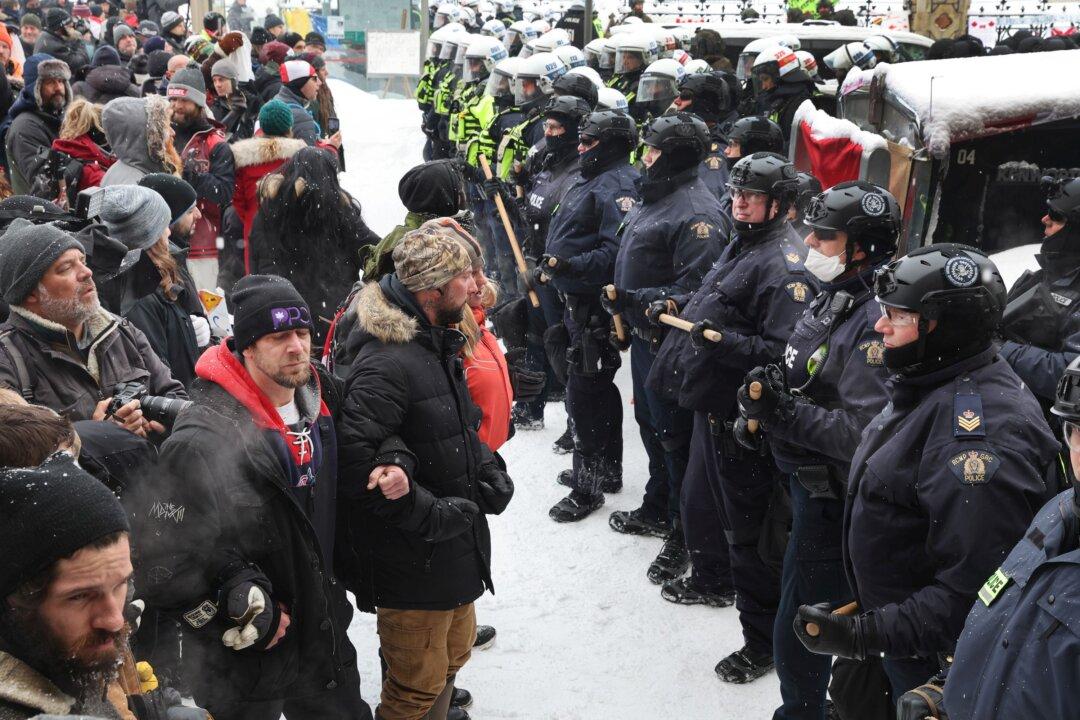An Ontario judge has dismissed charges against a Freedom Convoy protester, ruling that the man’s arrest was unlawful, and excluding video evidence collected without the proper authority.
Benjamin Spicer, arrested during the police clearing operation of the protest in Ottawa on Feb. 19, 2022, was charged with mischief, obstructing justice, and being in possession of a knife and pepper spray.





